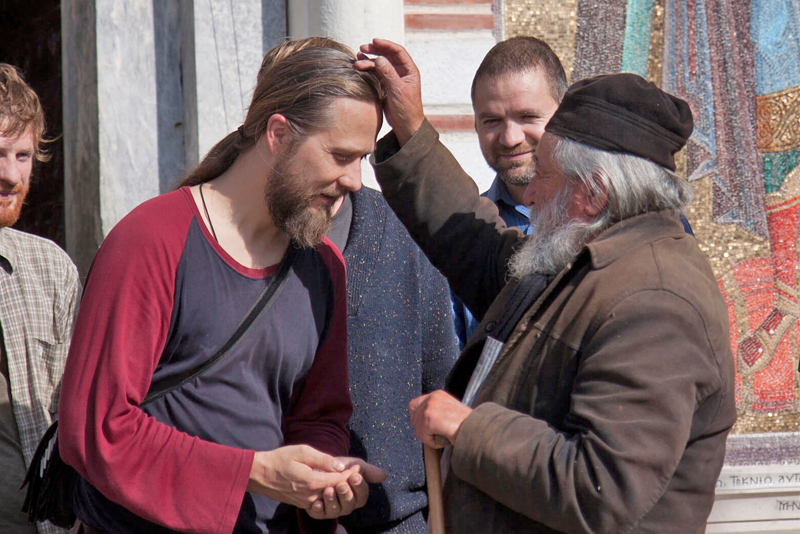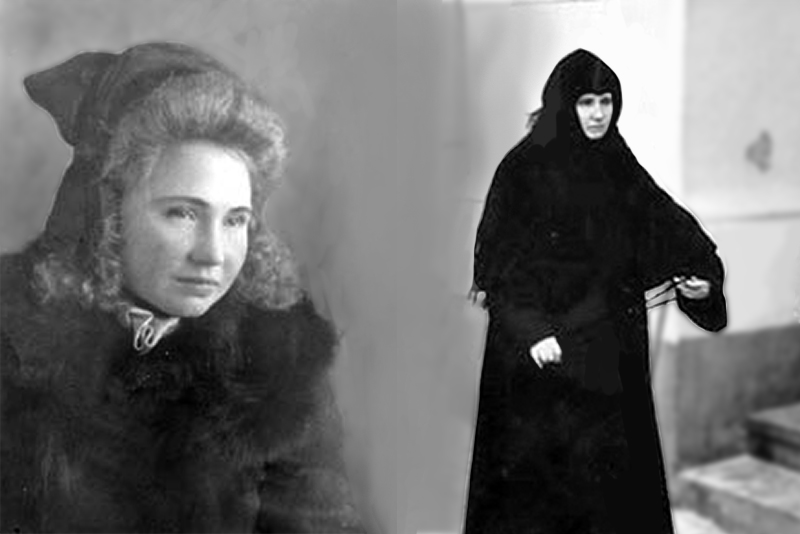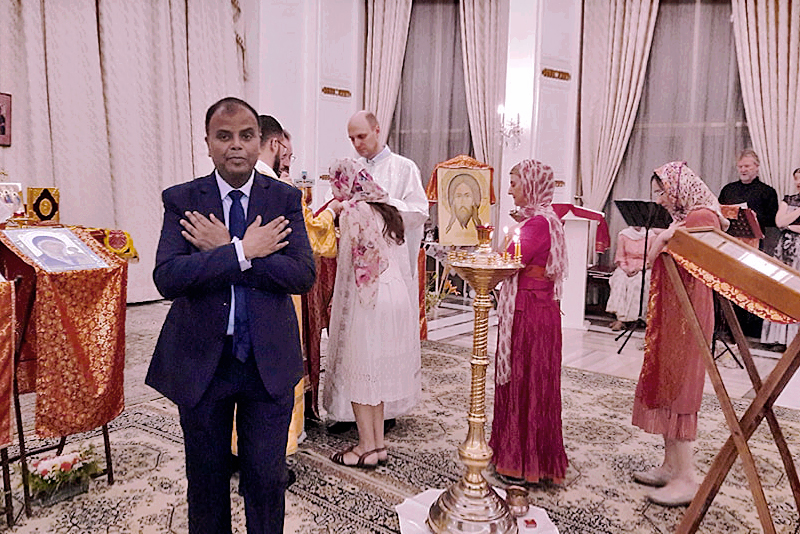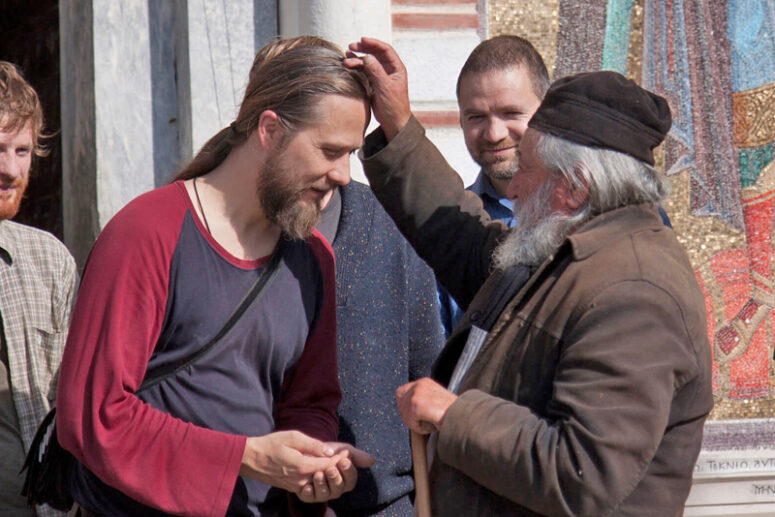
— The abbot of the Dochiariou monastery, Archimandrite Gregory (Zumis), was a hard-working man who loved simple monastic work. For many Athonite monasteries, a combination of several hours of work followed by several hours of prayer every day is the norm. In Docheiariou, simple physical labor is viewed as replacement of the prayer rule; a kind of a spiritual law that does not in any way contradict prayer and helps to fight passions. This is what makes Dochiariou Monastery different from others. Father Gregory often gave his blessing for the brethren to work after service on Sunday. He believed that monks should earn their daily bread with their own hands, rather than spending the benefactors’ money.
The brethren arrange everything in the monastery with their own hands. Often they make simple things, like a fence or a pavement, look very artistic by decorating them with flowers, ornaments and such. Normally you would see something like this in women’s monasteries, but Dochiariou is unique this way. The fathers are simple and hard-working: they carry stones, collect olives and cultivate the land.
Elder Gregory has been in a monastery since he was twelve. He moved to Docheiariou thirty years ago with his brethren consisting of several people from another monastery. The monastery and Athos in general were still in desolation, so he was offered a small skete for his ascetic labours. But Geronda did not agree to anything other than Docheiariou. They tried to convince him, arguing that the desolate monastery was too large to raise from the ruins. “What will you be doing there? A serious, big community is needed there.” But he said, “There will be people. Just give me the Docheiariou.” And so he was blessed with Docheiariou. Since then, the fathers have been restoring it pretty much from scratch.
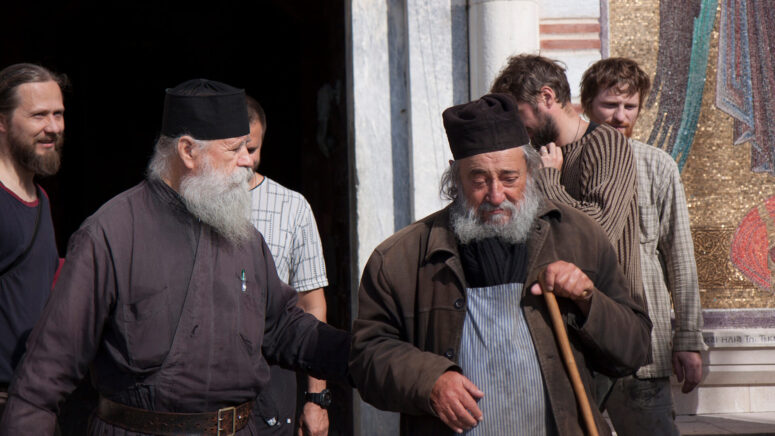
Our workshop has made some mosaics for the monastery of Docheiariou. Despite being very ill, Geronda constantly visited us. He was a very interesting person, and we had truly a unique opportunity to see the elder and to communicate with him. He was a true monastic and a gracious man, leading at the same time a very simple life. Put-on showiness or pretentious manners are always alarming, but this is not about Father Gregory. He was, I repeat, a very simple man. He never portrayed himself as a highly spiritual person. Quite on the contrary, he was constantly joking and always tried to find kind words for everyone. At the same time he could easily slap you on the cheek (he could do it quite hard, too), without losing his usual smile. Some of his slaps were hard enough to make my eyes dim. Who knows, perhaps there was some kind of spiritual action in this: it was refreshing and sobering.
There are many stories connected with Father Gregory.
Once, Geronda got a rooster to awaken the fathers for prayer. That rooster still lives in the monastery. Naturally, all Dochiariou inhabitants are different. Some of them, about eight people, were even planning to roast that rooster for crowing at four in the morning every day. Geronda told them, “You are monks, so we will keep you vigilant. This rooster likes waking up, so why don’t you wake up together with it.”
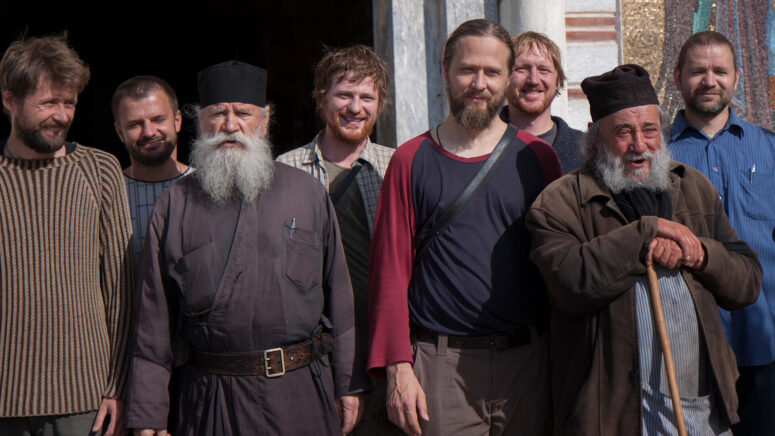
Their service starts at 4 am and ends at 8 am, followed by breakfast. They eat once in the morning, and then once in the evening. The meals are very meager, which is typical for all the Athonite monasteries: lentils, beans, a glass of water, an apple – that’s all.
I remember often seeing an old monk during my visits to the monastery. He was small and crooked. He walked on crutches, which he handled in masterly fashion. He could often be seen running somewhere on them. He always attended services. They told him, “Father, why don’t you sit in your cell? What are you walking about for?” He seemed to be asleep during services, but he was always awake at the right moments, especially during the Cherubic hymn and the Gospel readings. If he saw someone sleeping near him, he would poke him with his crutch, “Wake up!”
Geronda Gregory told him once: “Listen, father, maybe it’s time for you to die already. It’s been enough for you.” The old monk answered: “If you say so, Geronda, I am ready to go to any place.”
Translated by The Catalogue of Good Deeds
Source: https://obitel-minsk.ru/chitat/den-za-dnyom/2020/monastyrskie-istorii-o-geronde-i-starom-otce

